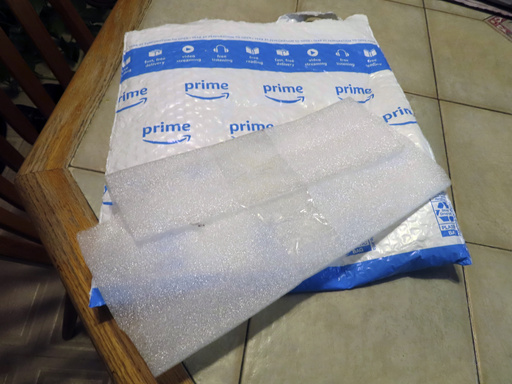New Jersey is taking significant steps to cut down on packaging waste, especially concerning plastic materials that are often discarded after being opened.
Items such as bubble wrap, air-filled pouches, and foam peanuts, while effective in protecting products during transport, frequently end up in landfills or contribute to environmental pollution.
To combat this issue, a proposed piece of legislation in the state Legislature aims to mandate that all packaging materials utilized in New Jersey be recyclable or compostable by the year 2034.
Although this bill was intended for discussion recently, that meeting has been rescheduled for January 6.
The U.S. Environmental Protection Agency has estimated that packaging and containers from commercial activities contribute to nearly 28% of the municipal waste sent to landfills across America.
The goal of the new bill in New Jersey is to pivot away from plastics, while also instituting fees on manufacturers and distributors to create a $120 million fund dedicated to enhancing recycling initiatives and minimizing solid waste.
Other states, including California, Colorado, Oregon, Maine, and Minnesota, have enacted similar measures, according to the environmental organization Beyond Plastics.
However, proponents assert that New Jersey’s proposed legislation would be the most robust in the country, as highlighted by Doug O’Malley, the director of Environment New Jersey, who stated that the state’s waterways are increasingly polluted by plastics and that recycling alone is not a sufficient solution.
Peter Blair, the policy and advocacy director at Just Zero, emphasized that the bill is designed to transfer the financial obligations of managing plastic packaging waste from taxpayers to the manufacturers responsible for producing the materials.
This shift is seen as a means to hold the producers accountable for the environmental impact of their products once they reach the end of their usable life.
Despite this push for reform, the proposed legislation has faced resistance from business groups.
Ray Cantor from the New Jersey Business and Industry Association critiqued the bill as impractical, suggesting that businesses are already striving to minimize excess packaging and boost recyclable material use.
He called the legislation “unrealistic” and argued that it disregards decades of successful recycling efforts in the state.
Cantor also noted that the bill seeks to prohibit several chemicals without scientific backing and would hinder advanced recycling methods, which he described as a promising technology capable of breaking down plastics at a molecular level for reuse.
In contrast, Brooke Helmick, the policy director of the New Jersey Environmental Justice Alliance, raised concerns about advanced recycling methods, stating they could lead to hazardous situations, such as toxic chemical releases or fires, creating even more waste during incineration.
The proposed legislation mandates an assessment by the state Department of Environmental Protection to evaluate the current recycling market and its readiness to handle increased recycling of packaging materials.
By 2032, single-use packaging is expected to decrease by 25%, with at least 10% of that reduction needing to come from either transitioning to reusable processes or eliminating plastic components altogether.
Ultimately, by 2034, the legislation envisions that all packaging utilized within the state must be compostable or recyclable, with the objective of achieving a recycling rate of at least 65% for packaging products by 2036.


